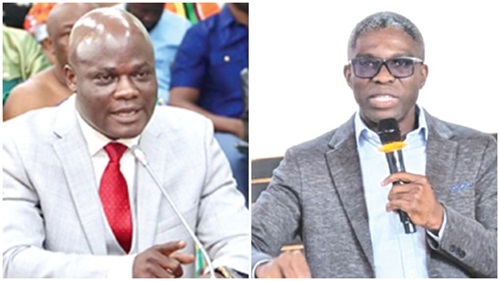President John Mahama has announced that Metropolitan, Municipal and District Chief Executives (MMDCEs) will no longer be appointed.
They will now be elected. President Mahama’s decision comes nearly 40 years after the creation of District Assemblies (DAs) in 1988 by the then Provisional National Defence Council (PNDC) government of Flt-Lt. Jerry John Rawlings.
The DAs were a key element in the PNDC government’s programme to decentralise and democratise the country’s administration.
The main strand of the programme, announced in 1987, was the establishment of DAs and sub-district bodies following elections held in two stages in December 1988 and February 1989.
The first PNDC programme for political democratisation in Ghana was formulated in 1983, although no concrete progress was made for several years.
While the government’s 1987 programme primarily stemmed from domestic considerations, two international developments also stimulated the administrative reform.
First, was the Africa-wide call for the introduction of multi-party political systems and the curtailment of single-party or personalist rule; the second was the continuing, apparently inexorable, general African economic decline despite the recourse to the economic and financial discipline associated with International Monetary Fund (IMF)/World Bank programmes in the 1980s.
In addition, external donors sought to link aid to governance reforms, including, where appropriate, decentralisation.
It has been argued that the PNDC’s original idea was that district assemblies and district chief executives would be appointed by the government.
Eventually, however, following pressure both from within government and from civil society and citizens, the PNDC accepted that some DA members would be elected by local voters.
Crucially, however, they would be elected on a ‘non-party’ basis, that is, in a political environment where political parties were banned, the status quo position until 1992.
Rawlings believed it was appropriate that those elected to DAs would be chosen by voters based on their personal qualities and standing in local communities rather than for their party affiliation. In reality, the PNDC wished to control the DAs and their chief executives, and if the government could not appoint all members of DAs as it would have preferred, the next best thing would be to allow elections where there was a good chance that PNDC-approved candidates would be chosen by enough of the electorate.
In short, the development of the DAs indicated that while the PNDC was keen to decentralise administrative power, it had no intention of spreading around political power, which would continue to emanate from the then seat of government, Christiansburg (Osu) Castle in Accra.
Election of MMDCEs
Thus, Ghana’s local government system was established under the PNDC regime and has remained unchanged for over three decades, continuing into the Fourth Republic for the past 32 years.
Throughout this period, there have been persistent calls from political elites, civil society and the general public for the election of MMDCEs. In response to these longstanding demands, President Mahama’s announcement that MMDCEs will no longer be appointed marks a significant shift in policy direction.
However, to make the election of MMDCEs a reality in Ghana requires both a broad political consensus and appropriate constitutional reforms.
While there is clear public and political support for the idea, there is disagreement between the New Patriotic Party (NPP) and the National Democratic Congress (NDC) over whether elections should be conducted on a partisan or a non-partisan basis.
While the NDC favours a non-partisan basis, the NPP does not. This strong disagreement hindered progress in 2019.
Achieving this important democratic reform demands meaningful stakeholder engagement, particularly between the NDC, NPP, civil society, traditional authorities and the broader citizenry.
Several constitutional provisions must be addressed. Most directly, Article 243(1), which currently empowers the President to appoint MMDCEs with the approval of the district assembly, needs to be amended to allow for popular election by the citizenry.
This amendment is relatively straightforward and can be passed by Parliament without a national referendum because Article 243 is a non-entrenched provision.
Its amendment requires the votes of at least two-thirds of all the members of Parliament, which the NDC currently has.
That might be the reason why President Mahama was emphatic that MMDCEs will no longer be appointed.
Amending entrenched provisions
The most complex issues, however, are Article 55(3) and Article 248(1) and (2), which prohibit political parties from sponsoring candidates or using party symbols in local government elections.
Amending Article 55(3), in particular, requires a national referendum, a process involving a minimum 40 per cent voter turnout and at least 75 per cent approval of valid votes cast.
These entrenched provisions raise the stakes and require even greater public education and political will.
Given these challenges, the most tenable approach may be to begin with the easier task: amending Article 243(1) to enable direct elections, while leaving the more contentious issues surrounding partisanship for future consideration.
This phase strategy will mark a significant step forward in local governance reforms without being derailed by more divisive debates.
Others, however, may argue that if it must be done, then it must be done well, suggesting all reforms be pursued together to avoid half-measures.
Whichever path is chosen, consensus building is indispensable.
Any attempt to amend the Constitution risks failure without inclusive dialogue and cross-party agreement.
The election of MMDCEs presents an opportunity to strengthen accountability and deepen democracy.
However, it is only through unity, legal clarity and shared national commitment that it can be achieved.
The writers are an Emeritus Professor of Politics, London Metropolitan University, UK and a Political Scientist.

